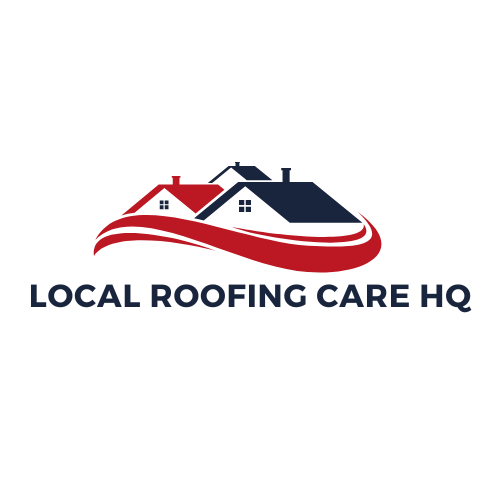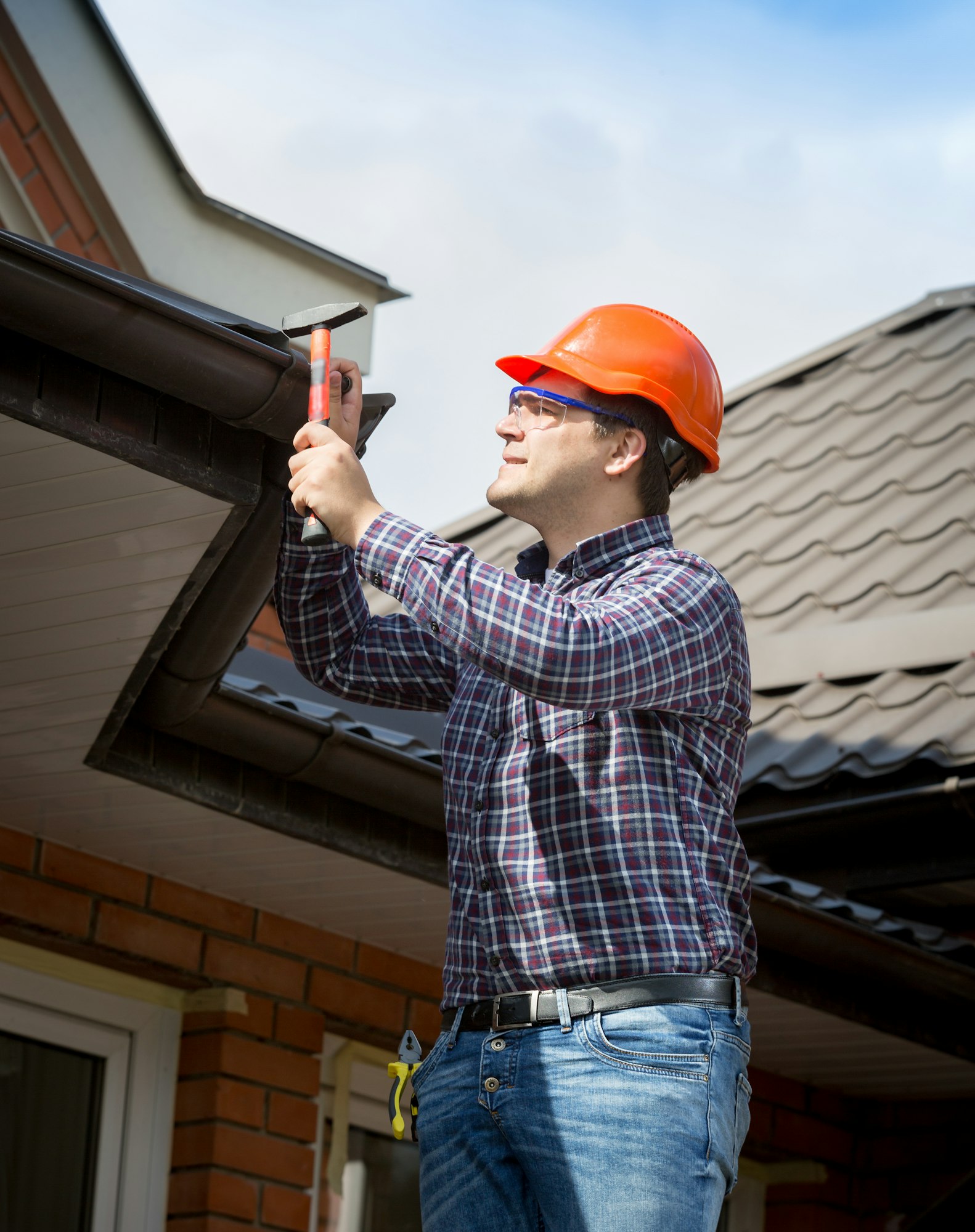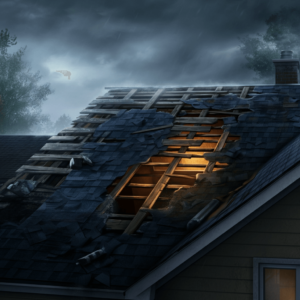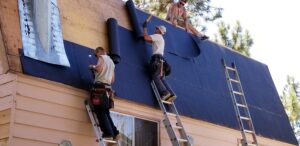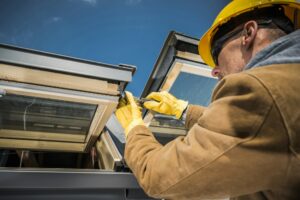Regarding maintaining the integrity of your home, roof repair is often a crucial yet overlooked aspect.
This guide covers common causes of damage and the signs that your roof needs attention.
It explores the costs involved, factors that influence pricing, and how to choose the right contractor for the job.
Additionally, it discusses various roofing materials and tips for preparing your home for repair.
A well-informed homeowner can save money and headaches, so let’s get started!
- What Is Roof Repair?
- What Are the Common Causes of Roof Damage?
- How Much Does Roof Repair Cost?
- How to Choose a Roofing Contractor?
- What Are the Different Types of Roofing Materials?
- How to Prepare for a Roof Repair?
- What to Expect During the Roof Repair Process?
- How to Maintain Your Roof to Avoid Future Repairs?
- Frequently Asked Questions
- What factors affect roof repair costs in my area?
- What factors affect roof repair costs in my area?
- How much can I expect to pay for roof repair in my area?
- How much can I expect to pay for roof repair in my area?
- Is it worth it to hire a professional for roof repair?
- Is it worth it to hire a professional for roof repair?
- Are there any additional costs I should be aware of when it comes to roof repair?
- Are there any additional costs I should be aware of when it comes to roof repair?
- Can I negotiate the cost of roof repair with a contractor?
- Can I negotiate the cost of roof repair with a contractor?
- What can I do to keep roof repair costs in my area to a minimum?
- What can I do to keep roof repair costs in my area to a minimum?
- What factors affect roof repair costs in my area?
- How much can I expect to pay for roof repair in my area?
- Is it worth it to hire a professional for roof repair?
- Are there any additional costs I should be aware of when it comes to roof repair?
- Can I negotiate the cost of roof repair with a contractor?
- What can I do to keep roof repair costs in my area to a minimum?
What Is Roof Repair?
.jpg_00.jpeg)
Roof repair refers to the various services and actions taken to address damage or deterioration in roofing materials, ensuring the structural integrity and functionality of residential roofs. This process encompasses a range of tasks from minor fixes to major renovations, performed by local contractors who specialize in roofing services.
The importance of a thorough roof inspection cannot be overstated, as it helps in conducting a detailed damage assessment and identifying the specific needs for repair. Understanding the types of roofing materials involved is crucial, as is being aware of potential roof repair costs.
What Are the Common Causes of Roof Damage?
Roof damage can arise from a variety of factors, significantly impacting the lifespan and functionality of your roofing system.
Common causes include severe weather conditions such as heavy rain, snow, and hail, which can lead to leaks and further degradation of roofing materials. Additionally, improper installation or aging of roofing materials, such as shingles, tiles, or flat roofs, can exacerbate these issues.
Understanding the common causes of roof damage is essential for homeowners to take preventive measures and schedule timely repairs to maintain their property’s value.
What Are the Signs of Roof Damage?
Identifying the signs of roof damage early is crucial in preventing costly repairs and preserving the integrity of your home.
Homeowners should also be vigilant for signs such as curling or buckling shingles, which can indicate age-related damage or potential leaks, leading to increased repair costs.
Water stains creeping down interior walls or a sudden increase in energy bills may suggest underlying roofing issues that require immediate attention.
If gutters are filled with granules resembling coarse sand, this could be a sign that the shingles are deteriorating.
Regular roof inspections not only safeguard against these potential hazards but also promote longevity and optimal performance, especially when considering trends in roofing and community ratings.
How Much Does Roof Repair Cost?
Understanding roof repair costs is essential for homeowners to budget effectively and avoid unexpected expenses when hiring roofing services. Factors influencing these costs include the severity of the damage, the type of roofing materials used, and the regional pricing variations by local contractors, which can provide a range of price estimates.
It’s important to note that while average costs can give a general idea, hidden fees related to roofing labor and permits can significantly alter the final bill. Therefore, a detailed cost breakdown is crucial for transparent pricing.
What Factors Affect the Cost of Roof Repair?
Several key factors influence the cost of roof repair, making it essential for homeowners to be informed before starting a project.
Among these factors, the choice of roofing materials stands out; for instance, opting for premium asphalt shingles over standard ones can lead to significantly higher costs but may offer increased material durability.
Project duration also plays a major role, as more complex repairs that require extensive labor will inevitably add to the overall expense.
Regional market variations can’t be ignored; those in urban areas may face steeper labor rates compared to those in rural locations.
Accessibility is another consideration—if a roof’s layout makes it difficult for workers to access the area needing repair, labor costs may rise, affecting the total budget, particularly with regard to specialist services.
Homeowners should keep these considerations in mind, particularly when assessing their insurance options, which might cover unexpected expenses stemming from damages.
What Are the Average Costs of Common Roof Repairs?
The average costs of common roof repairs can vary widely based on the type of damage and the specific repairs required. For instance, minor repairs like fixing leaks may range from a few hundred dollars, while more extensive work such as roof replacement could cost thousands. Emergency repairs, necessitated by sudden damage, often incur higher expenses due to immediate labor needs and material availability. Homeowners should familiarize themselves with these average costs to make informed decisions and explore financing options if necessary.
Budget-conscious homeowners might find that small repairs, such as replacing a few shingles, typically range from $200 to $500, making them relatively manageable and an excellent opportunity for DIY vs professional assessment.
Conversely, complete roof replacements can start anywhere from $5,000 to $15,000, depending on the materials used and the size of the home. Payment plans are frequently available through roofing companies, allowing homeowners to spread costs over time.
Understanding the financial aspects of these projects is crucial, as it helps in evaluating not only the immediate costs but also the potential long-term value of roof maintenance or upgrades, ensuring a favorable return on investment.
How to Choose a Roofing Contractor?
Choosing the right roofing contractor is a critical step in ensuring quality work and satisfactory results for your roof repair or replacement project. To make the best decision, homeowners should consider factors such as contractor reviews, their experience with local roofing services, and the reliability of provided roofing estimates.
It is essential to verify the licensing and insurance coverage of contractors, as these elements ensure compliance with safety regulations and local regulations, ultimately protecting your investment and providing peace of mind.
What Should You Look for in a Roofing Contractor?
When searching for a reliable roofing contractor, homeowners should prioritize several key attributes to ensure a successful project. Look for contractors who provide a clear scope of work, demonstrate a commitment to quality materials, and have positive customer satisfaction ratings reflective of their previous roofing jobs. A solid project management approach and transparent roofing warranties can signify a contractor’s dedication to excellence and long-term client relationships.
For instance, a detailed scope of work outlines every step involved, from material selection to project completion, preventing misunderstandings later on and ensuring compliance with local building codes.
Quality materials should not be just an afterthought; they directly impact the durability and performance of the roof, influencing long-term investment value, especially in relation to energy efficiency.
Customer satisfaction ratings sourced from reliable platforms can reveal insights into a contractor’s reliability and professionalism, impacting their market demand.
Excellent project management ensures adherence to timelines and budgets, minimizing disruptions.
Warranties that are clearly defined enable homeowners with peace of mind, showcasing a contractor’s accountability and commitment to service guarantees, ultimately fostering trust throughout the roofing process, which is essential for contractor quotes.
What Questions Should You Ask a Roofing Contractor?
.jpg_01.jpeg)
Asking the right questions when engaging a roofing contractor can significantly impact the success of your roofing project. Homeowners should inquire about roofing estimates, the timeline for project completion, and the materials being used, ensuring they align with safety standards and building codes. Asking for references from previous clients can provide insights into the contractor’s reliability and quality of work, helping to make a more informed decision.
Exploring the contractor’s warranty offerings is vital, as it can protect the investment in case of future issues.
Understanding how they handle unforeseen complications during the project is equally important; this helps in anticipating project complexity and planning appropriately for financial contingencies and assessing potential consultation fees.
Homeowners should also inquire about the payment schedule and if any upfront costs are required, ensuring that financial planning aligns with their budget, particularly in relation to service agreements.
These essential questions not only pave the way for smoother communication but also foster trust, ensuring the roofing project is executed without unnecessary delays or hidden surprises, thereby maintaining a positive relationship throughout the process.
What Are the Different Types of Roofing Materials?
Understanding the different types of roofing materials available is crucial for homeowners looking to make informed decisions about their roofing systems. Common materials include asphalt shingles, clay tiles, and flat roofs, each offering unique benefits and aesthetic appeal.
Additionally, eco-friendly options are increasingly popular, providing energy efficiency and sustainability for modern homes. Choosing the right roofing material not only impacts the cost of installation but also influences the long-term maintenance and value of the property.
What Are the Pros and Cons of Each Roofing Material?
Each type of roofing material comes with its distinct pros and cons, influencing homeowners’ choices based on their specific needs and budgets, including roofing materials and considerations for material durability.
This variety means that while a homeowner might be drawn to the classic look of slate shingles, they should consider factors such as weight, structural support requirements, and costs associated with installation and maintenance, including upfront costs and hidden fees.
Metal roofs, known for their durability and energy efficiency, present a long-term investment that can lead to savings on energy bills, yet they come with higher upfront costs. Additionally, homeowners should factor in installation costs when making decisions.
Conversely, wood shingles can offer a charming aesthetic but require regular upkeep to prevent rot and insect damage. Understanding roof types and their implications is crucial.
Ultimately, weighing these various factors enables homeowners to make choices that align with their financial considerations, home value, and long-term property goals.
Each type of roofing material comes with its distinct pros and cons, influencing homeowners’ choices based on their specific needs and budgets.
This variety means that while a homeowner might be drawn to the classic look of slate, they should consider factors such as weight, structural support requirements, and costs associated with installation and maintenance.
Metal roofs, known for their durability and energy efficiency, present a long-term investment that can lead to savings on energy bills, yet they come with higher upfront costs.
Conversely, wood shingles can offer a charming aesthetic but require regular upkeep to prevent rot and insect damage.
Ultimately, weighing these various factors enables homeowners to make choices that align with their financial considerations and long-term property goals.
How to Prepare for a Roof Repair?
Preparing for a roof repair involves several important steps to ensure a smooth process and favorable outcomes for the homeowner. This preparation includes defining the project scope with your contractor, ensuring compliance with local regulations and safety standards, and minimizing disruptions to your home environment.
Proper preparation can also involve removing outdoor furniture or decorations to protect them during repairs and allowing the contractors to work efficiently. Additionally, obtaining estimates for the work can help set appropriate expectations.
Preparing for a roof repair involves several important steps to ensure a smooth process and favorable outcomes for the homeowner. This preparation includes defining the project scope with your contractor, ensuring compliance with local regulations and safety standards, and minimizing disruptions to your home environment.
Proper preparation can also involve removing outdoor furniture or decorations to protect them during repairs and allowing the contractors to work efficiently.
What Should You Do Before the Roofing Contractor Arrives?
Before your roofing contractor arrives, there are several proactive measures you can take to facilitate a smooth and efficient repair process. Ensuring easy accessibility to the work area is crucial, as it allows contractors to arrive and complete the project within the expected project timeline. Consider renting any necessary equipment, such as ladders or scaffolding, to support their work and help prevent delays. Clearing the area of obstacles can contribute to a safer environment for both workers and your family.
One effective way to streamline the project management process is to communicate any special requirements ahead of time. This can include informing the contractor about specific concerns related to the roof or any unique property features that may influence the workflow. Discussing contractor experience or specialist services can also be beneficial.
Homeowners should also inspect and remove any outdoor furniture, planters, or decorations that could obstruct movement around the house. It is wise to establish a clear pathway for materials and equipment.
Ensuring that pets are safely secured inside can further enhance safety, allowing the contractors to focus on delivering quality work efficiently. Additionally, checking for insurance coverage can provide peace of mind.
Before your roofing contractor arrives, there are several proactive measures you can take to facilitate a smooth and efficient repair process. Ensuring easy accessibility to the work area is crucial, as it allows contractors to arrive and complete the project within the expected duration. Consider renting any necessary equipment, such as ladders or scaffolding, to support their work and help prevent delays. Clearing the area of obstacles can contribute to a safer environment for both workers and your family.
One effective way to streamline the project management process is to communicate any special requirements ahead of time. This can include informing the contractor about specific concerns related to the roof or any unique property features that may influence the workflow.
Homeowners should also inspect and remove any outdoor furniture, planters, or decorations that could obstruct movement around the house. It is wise to establish a clear pathway for materials and equipment.
Ensuring that pets are safely secured inside can further enhance safety, allowing the contractors to focus on delivering quality work efficiently.
How to Protect Your Home During Roof Repair?
Protecting your home during roof repair is essential to prevent additional damage and ensure a successful project. Homeowners should take preventative measures, such as covering furniture and valuables to shield them from debris and potential leaks. Being mindful of the weather impact during repairs can inform your contractor’s planning, especially if emergency repairs are necessary. Insurance coverage for damage during repairs should also be confirmed to provide peace of mind, including any warranties that may apply.
It’s vital to maintain open lines of communication with the contractor throughout the entire process. Discussing the expected timeline and any possible weather disruptions can significantly influence the quality and security of the work.
For instance, inclement weather like heavy rains or high winds can exacerbate vulnerabilities in your home, potentially leading to further depreciation in value. Effective dialogue can help identify any additional precautions needed, ensuring that both the home and the contractor’s team are well-protected from unforeseen circumstances. Remember to consider seasonal factors that might affect the job.
Protecting your home during roof repair is essential to prevent additional damage and ensure a successful project. Homeowners should take preventative measures, such as covering furniture and valuables to shield them from debris and potential leaks. Being mindful of the weather impact during repairs can inform your contractor’s planning, especially if emergency repairs are necessary. Insurance coverage for damage during repairs should also be confirmed to provide peace of mind.
It’s vital to maintain open lines of communication with the contractor throughout the entire process. Discussing the expected timeline and any possible weather disruptions can significantly influence the quality and security of the work.
For instance, inclement weather like heavy rains or high winds can exacerbate vulnerabilities in your home, potentially leading to further depreciation in value. Effective dialogue can help identify any additional precautions needed, ensuring that both the home and the contractor’s team are well-protected from unforeseen circumstances.
What to Expect During the Roof Repair Process?
Understanding what to expect during the roof repair process can alleviate concerns and help homeowners feel more prepared and informed. The project typically begins with a thorough damage assessment of the roof’s condition, followed by the development of a clear project management plan outlining the scope of work, expected timeline, and associated labor rates.
Homeowners should be prepared for possible disruptions and have open communication with their contractors throughout the duration of the roofing job. Also, consider obtaining comprehensive estimates before starting.
Understanding what to expect during the roof repair process can alleviate concerns and help homeowners feel more prepared and informed. The project typically begins with a thorough assessment of the roof’s condition, followed by the development of a clear project management plan outlining the scope of work, expected timeline, and associated labor rates.
Homeowners should be prepared for possible disruptions and have open communication with their contractors throughout the duration of the roofing job.
How to Maintain Your Roof to Avoid Future Repairs?
Maintaining your roof is vital for preventing future repairs and ensuring its longevity and performance. Regular roof maintenance practices include scheduled roofing inspections to identify potential issues early, such as worn-out roofing materials or minor leaks that can escalate into significant problems. Understanding roof types is essential for tailored maintenance.
Homeowners should also consider cleaning gutters and ensuring proper drainage to extend the lifespan of their roofs. By investing in proactive maintenance, you can save on costly repairs and enhance your property’s value. Maintaining proper venting systems and insulation can also improve energy efficiency.
Maintaining your roof is vital for preventing future repairs and ensuring its longevity and performance. Regular roof maintenance practices include scheduled inspections to identify potential issues early, such as worn-out roofing materials or minor leaks that can escalate into significant problems.
Homeowners should also consider cleaning gutters and ensuring proper drainage to extend the lifespan of their roofs. By investing in proactive maintenance, you can save on costly repairs and enhance your property’s value.
Frequently Asked Questions
.jpg_10.jpeg)
What factors affect roof repair costs in my area?
|||
What factors affect roof repair costs in my area?
The cost of roof repair in your area can be affected by a variety of factors, including the size and slope of your roof, the type of roofing materials used, the extent of damage or wear and tear, and the labor rates and material costs in your specific location. Additionally, consider geographical variations and regional pricing.
How much can I expect to pay for roof repair in my area?
|||
How much can I expect to pay for roof repair in my area?
The cost of roof repair in your area can vary greatly, but on average, homeowners can expect to pay between $300 and $1,500 for minor repairs and $1,000 to $4,000 for more extensive repairs. However, this can vary depending on the factors mentioned above, including average price comparisons.
Is it worth it to hire a professional for roof repair?
|||
Is it worth it to hire a professional for roof repair?
While DIY vs professional roof repair may seem like a cost-effective option, it is often not worth the risk and potential mistakes. Hiring a professional roofing contractor can ensure that the job is done correctly and safely, potentially saving you money in the long run. Check for customer satisfaction ratings beforehand.
Are there any additional costs I should be aware of when it comes to roof repair?
|||
Are there any additional costs I should be aware of when it comes to roof repair?
.jpg_11.jpeg)
Along with the cost of materials and labor, there may be additional costs for roofing permits, disposal of old materials, and any necessary repairs to underlying structures. It’s important to discuss these potential costs with your contractor before beginning the repair process, including any consultation fees that may arise.
Can I negotiate the cost of roof repair with a contractor?
|||
Can I negotiate the cost of roof repair with a contractor?
While some contractors may be willing to negotiate, it’s important to remember that quality work comes at a price. It’s best to carefully research and compare contractor quotes from multiple contractors to ensure you are getting a fair price for the services provided. Utilize negotiation tips to help you.
What can I do to keep roof repair costs in my area to a minimum?
|||
What can I do to keep roof repair costs in my area to a minimum?
Regular maintenance and prompt repairs when issues arise can help to keep roof repair costs to a minimum. Additionally, choosing durable and long-lasting roofing materials can save you money in the long run, influencing your return on investment. It’s also important to keep an eye on your roof and address any potential problems early on before they become more extensive and expensive to fix, especially considering trends in roofing.
What factors affect roof repair costs in my area?
The cost of roof repair in your area can be affected by a variety of factors, including the size and slope of your roof, the type of roofing materials used, the extent of damage or wear and tear, and the labor and material costs in your specific location.
How much can I expect to pay for roof repair in my area?
The cost of roof repair in your area can vary greatly, but on average, homeowners can expect to pay between $300 and $1,500 for minor repairs and $1,000 to $4,000 for more extensive repairs. However, this can vary depending on the factors mentioned above.
Is it worth it to hire a professional for roof repair?
While DIY roof repair may seem like a cost-effective option, it is often not worth the risk and potential mistakes. Hiring a professional roofing contractor can ensure that the job is done correctly and safely, potentially saving you money in the long run.
Are there any additional costs I should be aware of when it comes to roof repair?
Along with the cost of materials and labor, there may be additional costs for permits, disposal of old materials, and any necessary repairs to underlying structures. It’s important to discuss these potential costs with your contractor before beginning the repair process.
Can I negotiate the cost of roof repair with a contractor?
While some contractors may be willing to negotiate, it’s important to remember that quality work comes at a price. It’s best to carefully research and compare quotes from multiple contractors to ensure you are getting a fair price for the services provided.
What can I do to keep roof repair costs in my area to a minimum?
Regular maintenance and prompt repairs when issues arise can help to keep roof repair costs to a minimum. Additionally, choosing durable and long-lasting roofing materials can save you money in the long run. It’s also important to keep an eye on your roof and address any potential problems early on before they become more extensive and expensive to fix.
